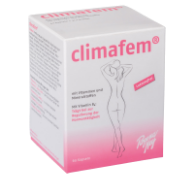
Areas of application / Hormones
Hormones
Hormones are biochemical messengers in the human body that play a decisive role in the regulation of various physiological processes.
They are produced in endocrine glands such as the thyroid gland, pancreas or hypothalamus and released into the interstitium.
They are distributed throughout the body via the bloodstream and thus reach their respective target cells.
Target organs and tissues: Each hormone has specific target organs or tissues on which it acts.
For example, pancreatic insulin acts on muscle, liver, kidney and fat cells to regulate glucose metabolism.
Regulation: Hormone production and release are subject to careful regulation.
Feedback loops, which are controlled by other hormones, the nervous system and external influences, affect the hormone levels in the body.
Important hormones: The important hormones in the human body include insulin (regulation of blood sugar levels), thyroxine (thyroid hormone), cortisol (stress hormone), oestrogen and progesterone (female sex hormones) and testosterone (male sex hormone).

Hormones play a crucial role in numerous physiological processes, including growth, metabolism, reproduction, immune response and stress response.
Imbalances in hormone levels can lead to various diseases.
Just as these biochemical messengers control precise biological processes, a targeted therapeutic approach at the cellular level could help to promote well-being and hormonal balance in a natural way.
Diseases and symptoms
-
Hypothyroidism: Hypothyroidism is an underactive thyroid gland that leads to a lack of thyroid hormones.
This can lead to fatigue, weight gain and a slower metabolic rate. -
Hyperthyroidism: Hyperthyroidism is an overproduction of the thyroid gland and occurs when the thyroid gland produces too much thyroid hormone.
This can lead to symptoms such as excessive sweating, weight loss and cardiac arrhythmia. -
Addison’s disease: Addison’s disease is a disease of the adrenal cortex in which the production of glucocorticoids (such as cortisol) is reduced.
This leads to weakness, fatigue and an impaired response to stress. -
Cushing’s disease: Cushing’s disease is an overproduction of cortisol, usually due to adrenal hyperfunction.
Symptoms include weight gain, fat distribution disorders and high blood pressure. -
Conn’s syndrome: This syndrome is characterized by primary hyperaldosteronism, in which the adrenal glands produce too much aldosterone.
This can lead to high blood pressure and electrolyte imbalances. -
Diabetes mellitus type 2: In this metabolic disease, the body no longer reacts sufficiently to insulin.
This means that there is a reduced insulin effect due to a relative lack of insulin in liver, muscle and fat cells.
This leads to weakness and reduced performance, including urinary tract infections and fungal infections as well as agonizing itching.
Care and maintenance of health
-
Healthy diet: A balanced diet with an appropriate ratio of macronutrients and micronutrients is important.
A diet with plenty of fresh fruit, vegetables, wholegrain products and lean protein can help prevent type 2 diabetes mellitus and metabolic disorders. -
Regular physical activity: Exercise helps control weight, boosts metabolism and promotes heart health.
Regular exercise can help to reduce the risk of diabetes, obesity and cardiovascular disease. -
Stress management: Chronic stress can lead to hormonal imbalances.
Relaxation techniques such as meditation, yoga and stress management training can help to reduce stress and maintain hormonal balance. -
Healthy body weight: Overweight and obesity are risk factors for hormonal diseases such as diabetes and thyroid disorders.
Maintaining a healthy body weight is crucial. -
Regular preventive healthcare: Regular medical examinations and health checks enable the early detection and management of hormonal disorders.
This applies in particular to hormonal diseases such as thyroid disorders and diabetes.
The following content is only visible to specialists. Register now.


climafem®
For women going through the menopause!
Helps to regulate
hormone activity.
PZN 3353070

